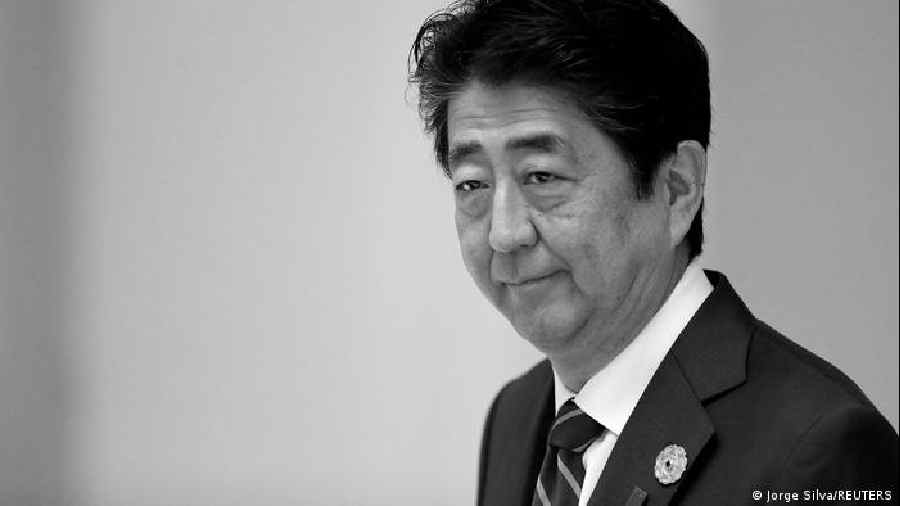The stunning assassination of Prime Minister Shinzo Abe rattled Japan and its sense of identity as a peaceful country where violent crime is rare.
The graphic videos and photographs of Abe being gunned down during a lunchtime campaign rally in western Japan stunned the nation on Friday. Shock turned to grief when the former Prime Minister was declared dead in the early evening.
“You never hear about gun violence here. On TV, you hear about it all the time in the US but not here,” said Ayane Kubota, 37, who was heading home from work and looking at the news of Abe’s death on her phone. “This is so not Japanese.”
Erika Inoue, a 25-year-old designer, said the events of the day felt more like a Hollywood script than real life in Japan, where there was one death in 2021 from a gun-related incident.
“I’m shocked by this,” she said. “The shooting part is confusing. There are guns? In Japan?”
Near the train station crossing where Abe was shot, a makeshift memorial started to appear after the news of his death. People dropped off flowers, slices of watermelon, candy, and bottles of juice as crowds gathered to take photos and stop for a moment.
When news of Abe’s death was announced before Friday’s game between the Yomiuri Giants and the Yokohama DeNA BayStars, there were screams and surprised voices from the stands. Then, the crowd fell quiet and a 30-second moment of silence was observed.
From Abe protege Prime Minister Fumio Kishida to ordinary people on social media, there was an outpouring of grief in a nation where political violence is so rare the last time a former or sitting Prime Minister was killed was nearly 90 years ago.
“I am incredibly shocked,” Tokyo governor Yuriko Koike told a regular news conference before Abe’s death was announced, fighting back tears and sniffling audibly. “No matter the reason, such a heinous act is absolutely unforgivable. It is an affront against democracy.”
Koki Tanaka, a 26-year-old IT worker in downtown Tokyo, voiced a similar view: “I was simply astonished that this could happen in Japan.”
Japan’s gun-ownership restrictions do not allow private citizens to have handguns, and licenced hunters may own only rifles. Gun owners must attend classes, pass a written test, and undergo a mental health evaluation and a background check.
Shootings, when they occur, typically involve “yakuza” gangsters using illegal weapons. In 2021, there were 10 shooting incidents, eight involving gangsters, according to police data. One person was killed and four wounded. Japan has had mass killings, but they usually have not involved guns.
In 2016, 19 residents of a facility for mentally disabled people were murdered in their beds by a knife-wielding assailant, while in 2019 34 people were killed in an arson attack on an animation studio.
Attacks on politicians, though, are unusual.
There have been only a handful in the last half-century, most notably in 2007 when the mayor of Nagasaki was shot and killed by a gangster — an incident that resulted in still further tightening of gun regulations.
New York Times News Service and Reuters











